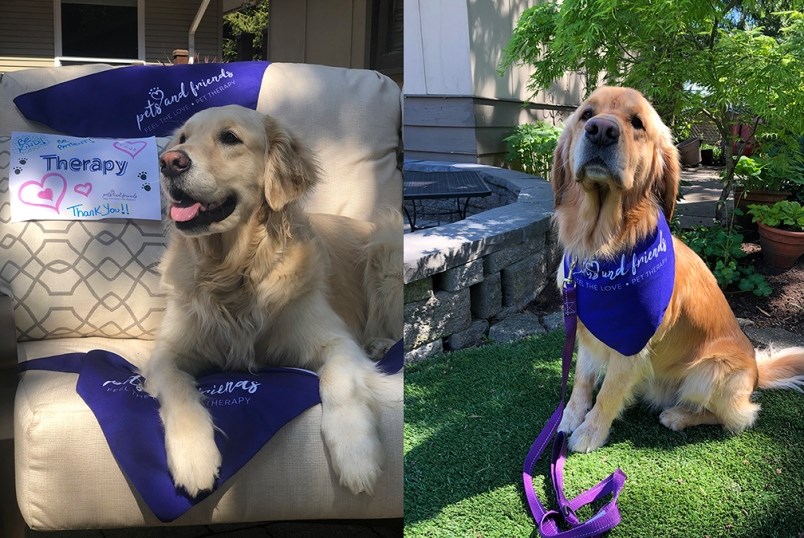Burnaby kids may soon get a chance to read to therapy dogs to boost their skills and confidence, as a pet therapy group kicks off a year-long pilot program this summer.
Currently, BC Pets and Friends works with universities, hospitals and seniors homes to bring volunteers with pets and offer a “dose of warmth and love” for those who need it. Now, the non-profit is looking to expand that service to work with groups of children.
Volunteers would bring their pets – mostly dogs, but they also have volunteers with cats and rabbits – to libraries or other similar facilities where they would work with a group of 25 children aged 12 and under. Through those groups, children who might have a hard time reading could read aloud to therapy dogs.
“A therapy dog is completely non-judgemental, so it’s a safe environment and low-stress for them to improve their skills,” said pet therapy coordinator Katie Oster.
Oster said studies have shown reading aloud to dogs may improve learning outcomes through the emotional support they offer, helping to develop skills and boost children’s confidence in those skills before they try reading in front of their peers.
A 2016 review out of the U.K.’s Lincoln University, which looked at 48 studies, found the practice “may have a beneficial effect on a number of behavioural processes which contribute to a positive effect on the environment in which the reading is practised, leading to improved reading performance.”
That review, however, also called for more studies of a higher quality to draw more solid conclusions from.
Oster added the group will also look to work with children in hospitals.
“It might, for them, provide a distraction, something else for the children to focus on because the hospital can be really scary,” she said. “The therapy dogs give their unconditional love and acceptance without expecting anything in return. We might see smiles and laughter, even if it’s just for a short bit.”
Oster said it would also give the kids something to talk about after the visit, since dogs might be a surprise for them to see in the hospital.
Read more from the



